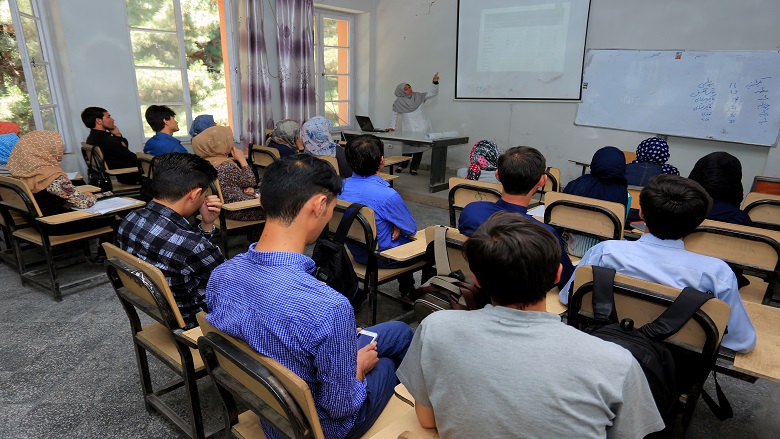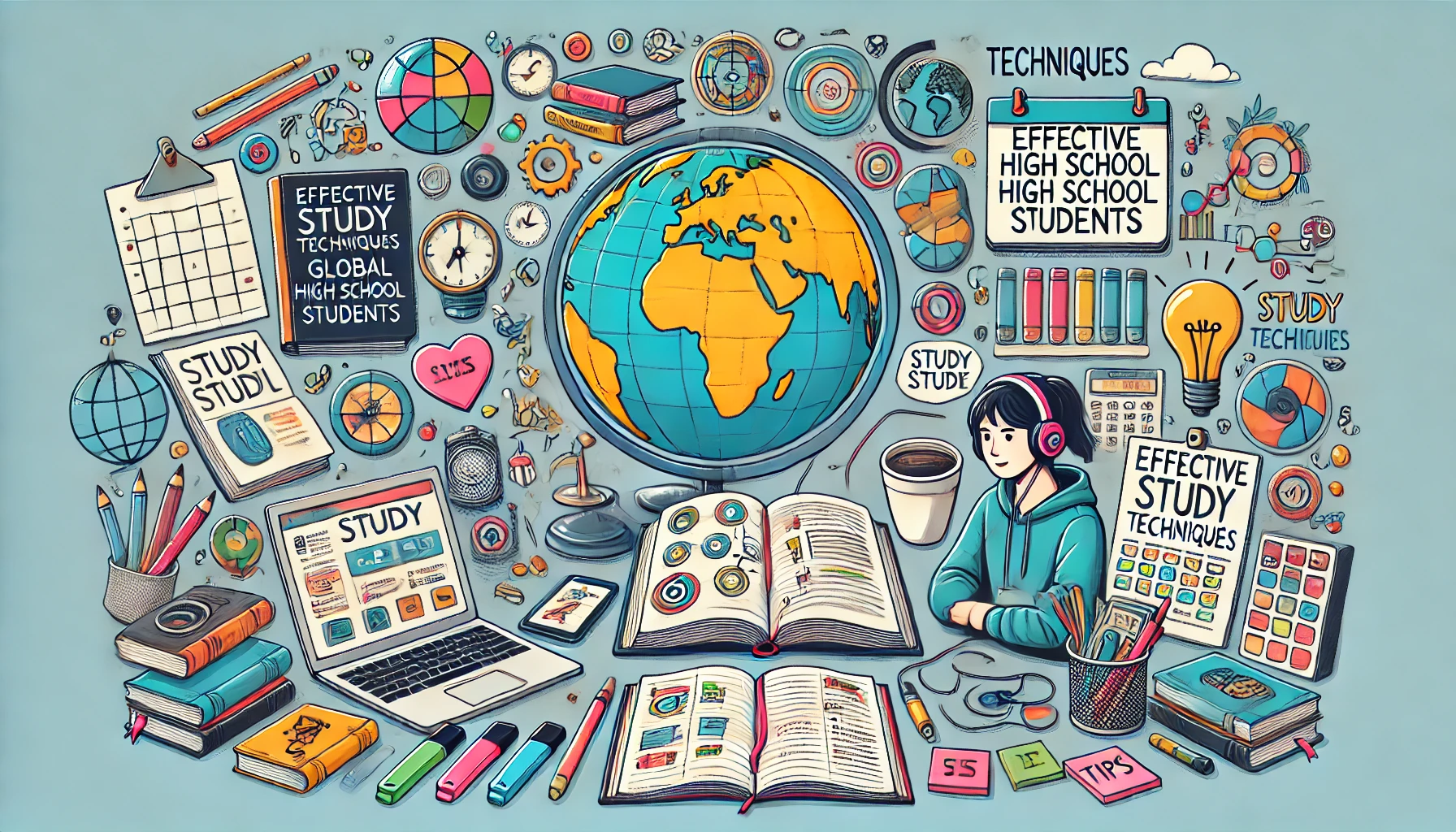Advanced Techniques in Higher Education: Revolutionizing Learning Methods
Exploring innovative approaches that are transforming educational landscapes and preparing students for future challenges
The Evolution of Higher Education Methodologies
Higher education stands at a critical crossroads today, with traditional teaching methods increasingly giving way to innovative, technology-enhanced approaches. The landscape of tertiary education has evolved dramatically over the past decade, shifting from conventional lecture-based instruction to more dynamic, interactive learning environments that better prepare students for real-world challenges.
This paradigm shift isn't merely about incorporating technology into classrooms; it represents a fundamental rethinking of how knowledge is transmitted, absorbed, and applied. Educational institutions worldwide are now embracing these advanced techniques to enhance learning outcomes, improve student engagement, and ultimately produce graduates who are better equipped to navigate complex professional landscapes.
At Al Mithaq Institute, we recognize the vital importance of staying at the forefront of educational innovation. Our commitment to excellence in higher education is reflected in our ongoing exploration and implementation of cutting-edge methodologies that transform traditional learning experiences.
Key Drivers of Educational Transformation:
- Rapid technological advancement and digital integration
- Changing workforce requirements and skill demands
- Increased global connectivity and knowledge sharing
- Growing emphasis on personalized learning experiences
- Rising demand for practical, application-based education
Technological Integration in Modern Education
Technology has become an integral component of advanced educational frameworks. The strategic implementation of digital tools has transformed traditional classrooms into dynamic, interactive learning spaces where students can engage with content in previously impossible ways.
Virtual Reality (VR) & Augmented Reality (AR)
Immersive technologies are revolutionizing how complex concepts are visualized and understood. Medical students can practice surgical procedures in virtual environments, while architecture students can walk through their designs before they're built. These technologies bridge the gap between theoretical knowledge and practical application.
Artificial Intelligence & Adaptive Learning
AI-powered systems analyze student performance in real-time, identifying strengths and weaknesses to create personalized learning paths. These adaptive platforms adjust content difficulty, suggest additional resources, and provide targeted feedback, allowing each student to progress at their optimal pace.
The integration of Learning Management Systems (LMS) has streamlined administrative processes while creating comprehensive digital frameworks for content delivery, assessment, and communication. These platforms enable educators to track student progress with unprecedented detail, allowing for data-driven instructional decisions.
Blockchain technology is emerging as a powerful tool for credential verification and record-keeping in higher education. This secure, decentralized approach to managing academic achievements could revolutionize how qualifications are documented and shared across institutions and employers globally.
Pedagogical Innovations Transforming Classrooms
Beyond technological advancements, profound pedagogical shifts are reshaping how teaching and learning occur in higher education settings. These methodological innovations focus on developing critical thinking skills, problem-solving abilities, and collaborative competencies essential for success in modern workplaces.
Flipped Classroom Model
The traditional information delivery model has been inverted through flipped classroom approaches. Students engage with lecture content independently through videos or readings, reserving valuable class time for interactive discussions, problem-solving activities, and collaborative projects. This approach maximizes face-to-face interactions between students and instructors, creating more meaningful learning experiences.
Project-Based Learning (PBL)
PBL frameworks engage students in complex, real-world challenges that require critical thinking and creative problem-solving. Rather than compartmentalizing knowledge into discrete subjects, this integrative approach mirrors professional environments where multidisciplinary thinking is essential. Students develop not only technical expertise but also crucial soft skills like teamwork, communication, and project management.
At Al Mithaq Institute's educational programs, project-based learning is incorporated across various disciplines, preparing students for practical workplace challenges.
Competency-Based Education (CBE)
CBE shifts focus from time-based measurements of learning to performance-based assessments. Students progress by demonstrating mastery of specific competencies rather than completing predetermined credit hours. This approach accommodates different learning paces while ensuring all graduates possess the essential skills and knowledge required for their field.
Effectiveness of Modern Teaching Approaches
Personalized Learning Frameworks
The one-size-fits-all approach to education is rapidly becoming obsolete as institutions recognize the diverse learning styles, backgrounds, and goals of their student populations. Advanced personalization techniques are creating more inclusive and effective learning environments tailored to individual needs.
Data analytics now allow educators to develop sophisticated learner profiles that capture not only academic performance but also learning preferences, motivational factors, and career aspirations. This comprehensive understanding enables highly targeted interventions and customized learning pathways.
Key Components of Personalized Learning:
- Adaptive Content Delivery: Materials adjust in complexity and format based on individual progress and preferences.
- Flexible Pacing: Students move through material at their optimal speed, spending more time where needed.
- Multiple Learning Pathways: Different routes to achieving the same learning objectives, accommodating various learning styles.
- Targeted Feedback Systems: Timely, specific guidance that addresses individual challenges and reinforces strengths.
- Self-Directed Learning Options: Opportunities for students to pursue personal interests within curriculum frameworks.
Microcredentialing and digital badges represent another dimension of personalization, allowing students to build customized skill portfolios aligned with their career objectives. These granular credentials recognize specific competencies acquired through both formal coursework and experiential learning opportunities.
Recent research from the International Journal of Educational Technology in Higher Education indicates that well-implemented personalized learning approaches can increase retention rates by up to 34% and improve learning outcomes across diverse student populations.
Assessment Revolution: Beyond Traditional Testing
Advanced educational techniques have sparked a fundamental reconsideration of assessment practices. Traditional examinations, while still valuable in certain contexts, are increasingly supplemented or replaced by more authentic evaluation methods that better reflect real-world competencies.
Portfolio Assessment
Comprehensive collections of student work demonstrating growth and mastery over time. Portfolios capture the learning journey rather than isolated performance moments.
Authentic Assessment
Tasks mirroring real-world challenges professionals face, requiring application of knowledge in context rather than simple recall of information.
Peer and Self-Assessment
Structured evaluation processes that develop metacognitive skills and critical judgment while providing multiple perspectives on work quality.
Learning analytics have transformed the assessment landscape by providing continuous feedback loops. Rather than relying solely on summative evaluations at course completion, educators can monitor progress in real-time, identifying and addressing challenges as they emerge.
The integration of artificial intelligence in assessment has enabled more sophisticated evaluation of complex skills like critical thinking and problem-solving. Natural language processing algorithms can analyze written work for conceptual understanding, while simulation-based assessments evaluate decision-making in realistic scenarios.
"The future of education lies not in what students can memorize, but in what they can create, analyze, and accomplish with their knowledge."
Global Collaboration and International Perspectives
Advanced higher education frameworks increasingly emphasize global connectivity and cross-cultural competencies. Digital platforms have eliminated geographical barriers, creating unprecedented opportunities for international collaboration among students and faculty.
Virtual exchange programs allow students to engage in collaborative projects with peers from different countries without physical travel. These initiatives develop not only subject-specific knowledge but also intercultural communication skills essential in today's globalized workplace.
Curriculum internationalization ensures that educational content reflects diverse global perspectives rather than single cultural viewpoints. This approach prepares students to navigate complex international environments and consider challenges from multiple cultural frameworks.
Benefits of Global Educational Approaches:
- Enhanced cultural intelligence and communication skills
- Exposure to diverse problem-solving methodologies
- Development of global professional networks
- Improved adaptability to different working environments
- Broader understanding of global challenges and opportunities
At Al Mithaq Institute, our international partnerships with leading educational institutions create opportunities for students to benefit from global expertise and diverse perspectives. These collaborations enhance both curriculum quality and the overall learning experience.
Preparing Educators for Next-Generation Teaching
The implementation of advanced educational techniques requires significant professional development for faculty members. Today's educators must continually update their skills to effectively leverage new technologies and methodologies in their teaching practice.
Comprehensive faculty development programs focus not only on technical skills for digital tool usage but also on pedagogical approaches that maximize these technologies' potential. Workshops on designing effective flipped classrooms, facilitating online discussions, and creating engaging digital content have become essential components of educator preparation.
Communities of practice among educators provide valuable forums for sharing experiences, troubleshooting challenges, and collaboratively developing innovative teaching approaches. These professional learning networks accelerate the adoption and refinement of advanced techniques across institutions.
Faculty Development Focus Areas
Technical Competencies
- Learning management system proficiency
- Digital content creation and curation
- Data analytics for student assessment
- Virtual/augmented reality implementation
Pedagogical Approaches
- Active learning facilitation
- Project-based learning design
- Formative assessment strategies
- Inclusive teaching methodologies
Mentorship programs pairing experienced innovators with faculty new to advanced techniques accelerate the diffusion of effective practices. These structured relationships provide personalized guidance and support during the often challenging transition to new teaching approaches.
Future Trends in Higher Education Techniques
The landscape of higher education continues to evolve rapidly, with several emerging trends poised to further transform teaching and learning experiences in the coming years. Understanding these future directions is essential for educational institutions seeking to remain at the forefront of innovation.
Immersive Learning Environments
The next generation of virtual reality technologies will create increasingly sophisticated immersive experiences that blur the line between physical and digital learning spaces. Students will engage with complex concepts through multi-sensory environments that enhance understanding and retention.
AI-Enhanced Personalization
Artificial intelligence capabilities will continue to advance, enabling hyper-personalized learning experiences that adapt not only to academic performance but also to emotional states, attention levels, and learning preferences in real-time.
The integration of neuroscience and educational practice will deepen, with techniques increasingly informed by research on how the brain processes, stores, and retrieves information. This science-based approach will optimize everything from content presentation to assessment timing for maximum learning effectiveness.
Micro-credentials and stackable qualifications will likely become more prominent as the demand for flexible, targeted education continues to grow. These modular approaches allow learners to build customized educational pathways aligned with specific career goals and evolving industry requirements.
Preparing for the Future of Education
Educational institutions that thrive in the coming decades will be those that embrace innovation while maintaining unwavering focus on learning outcomes and student success. Balancing technological advancement with sound pedagogical principles will remain the key challenge and opportunity.
FAQ: Advanced Techniques in Higher Education
How are advanced educational techniques improving student outcomes?
Advanced techniques improve outcomes by increasing engagement through interactive learning, enhancing retention with personalized approaches, developing critical thinking through authentic assessments, and building relevant skills through practical applications. Research shows these methods typically result in 15-30% better learning outcomes compared to traditional approaches.
What challenges do institutions face when implementing new educational methodologies?
Common challenges include faculty resistance to change, technological infrastructure limitations, financial constraints for new tools and training, quality assurance in digital environments, and ensuring equitable access for all students. Successful implementation typically requires strategic planning, adequate resource allocation, and comprehensive change management approaches.
How can educators balance technology integration with traditional teaching values?
Effective balance comes from viewing technology as an enabler rather than a replacement for good teaching. Educators should start with clear learning objectives, then selectively incorporate technologies that enhance those goals. Maintaining meaningful human interaction, even in digital environments, remains essential for developing critical thinking and ethical reasoning.
Which advanced techniques are most effective for developing workplace-ready skills?
Project-based learning, industry-partnered capstone experiences, simulation-based training, and collaborative problem-solving scenarios consistently demonstrate the strongest results for workplace preparation. These approaches develop both technical competencies and essential soft skills like communication, teamwork, and adaptability that employers highly value.
How is artificial intelligence changing the educational landscape?
AI is transforming education through personalized learning paths, intelligent tutoring systems, automated feedback on assignments, early intervention for struggling students, content curation, and administrative efficiency. While some fear AI might replace educators, its most powerful applications augment teacher capabilities, freeing them to focus on higher-value interactions with students.







